
Find Help
More Items From Ergsy search
-

Is chronic fatigue syndrome contagious?
Relevance: 100%
-
What is chronic fatigue syndrome?
Relevance: 98%
-

What causes chronic fatigue syndrome?
Relevance: 93%
-
Is chronic fatigue syndrome a mental illness?
Relevance: 91%
-
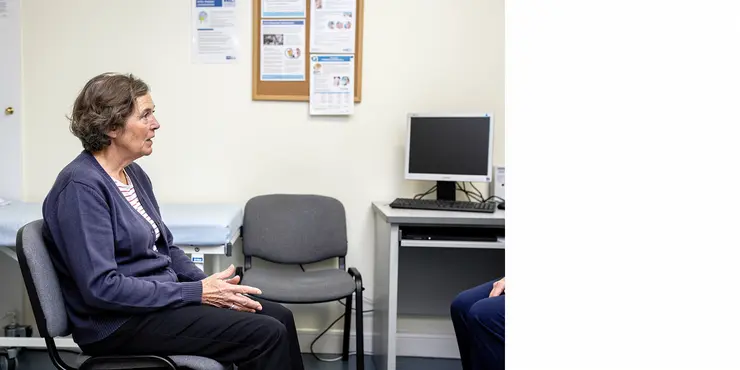
Are there psychological aspects to chronic fatigue syndrome?
Relevance: 88%
-
Can children develop chronic fatigue syndrome?
Relevance: 86%
-
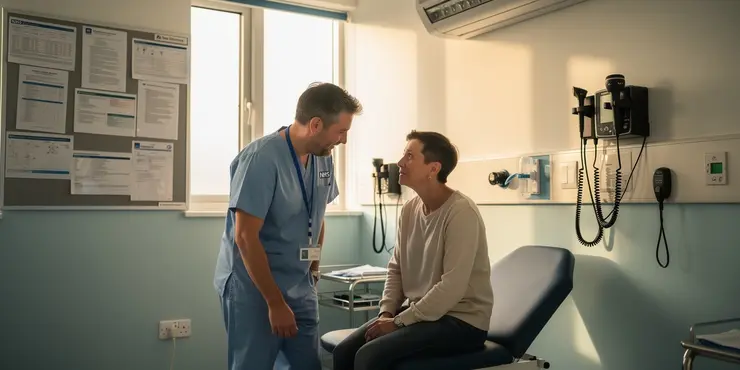
What role do infections play in chronic fatigue syndrome?
Relevance: 83%
-

Who is at risk of developing chronic fatigue syndrome?
Relevance: 82%
-
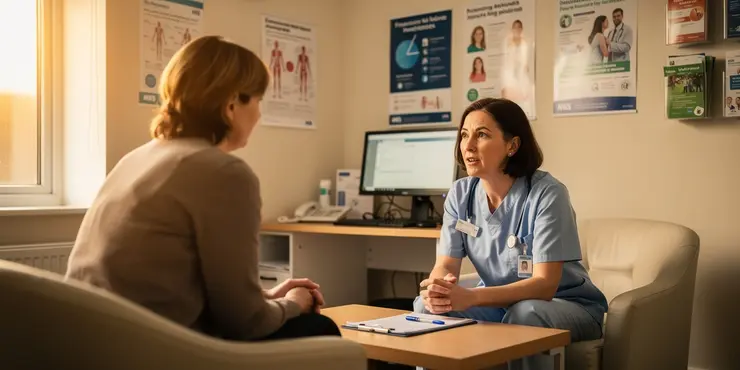
How is chronic fatigue syndrome treated?
Relevance: 74%
-

Is there a cure for chronic fatigue syndrome?
Relevance: 73%
-

How is chronic fatigue syndrome diagnosed?
Relevance: 73%
-

Myalgic encephalomyelitis or chronic fatigue syndrome (ME/CFS) | NHS
Relevance: 73%
-

Can chronic fatigue syndrome be managed with lifestyle changes?
Relevance: 63%
-
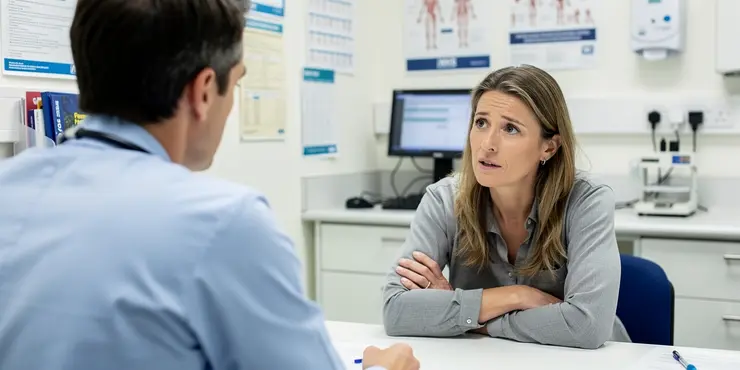
How does CFS differ from regular fatigue?
Relevance: 50%
-
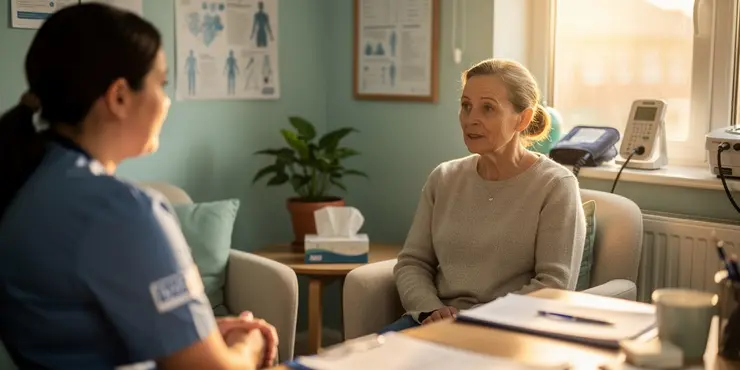
What is Cushing's syndrome?
Relevance: 43%
-
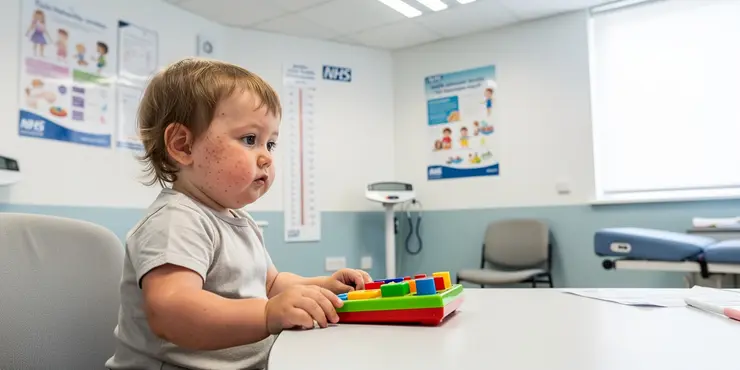
Prader-Willi Syndrome | NHS
Relevance: 40%
-

How is Carpal Tunnel Syndrome diagnosed?
Relevance: 39%
-

Carpal Tunnel Syndrome
Relevance: 38%
-

What is irritable bowel syndrome (IBS)?
Relevance: 38%
-
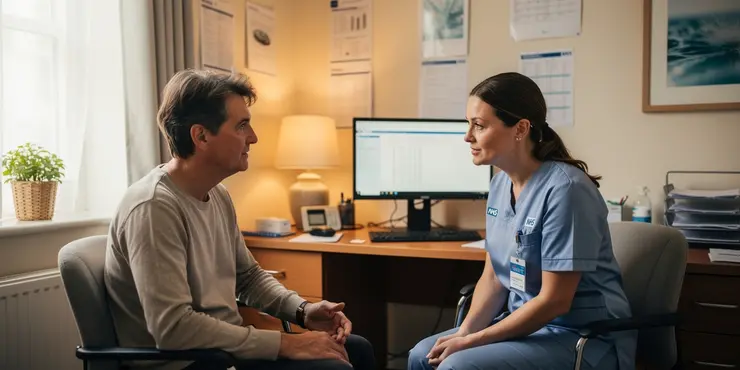
Munchausen's syndrome | NHS
Relevance: 37%
-
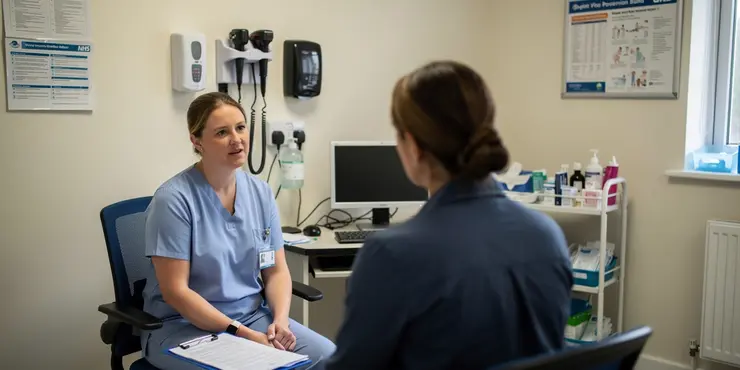
What is post-treatment Lyme disease syndrome (PTLDS)?
Relevance: 36%
-

What is complex sleep apnea syndrome?
Relevance: 35%
-

Is Carpal Tunnel Syndrome covered by the NHS?
Relevance: 35%
-
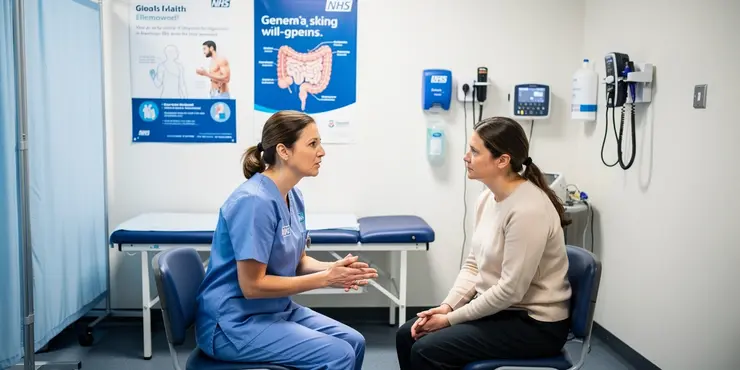
Symptoms of irritable bowel syndrome (IBS)
Relevance: 35%
-

Having a child with Down's syndrome | NHS
Relevance: 34%
-
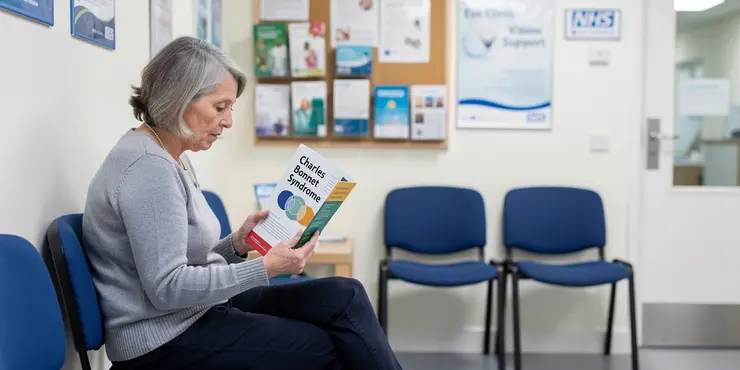
Charles Bonnet Syndrome
Relevance: 34%
-
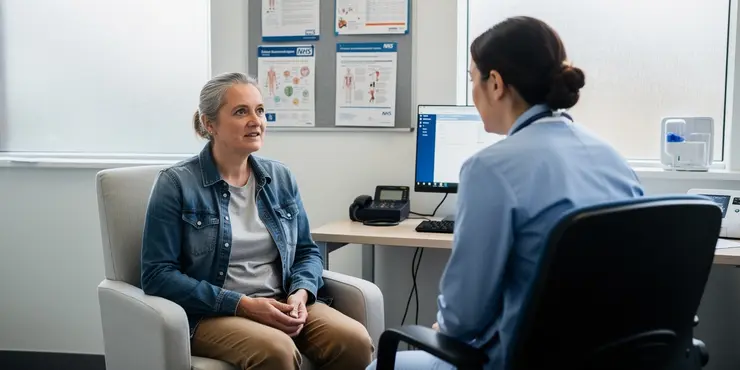
How does post-exertional malaise relate to CFS?
Relevance: 34%
-
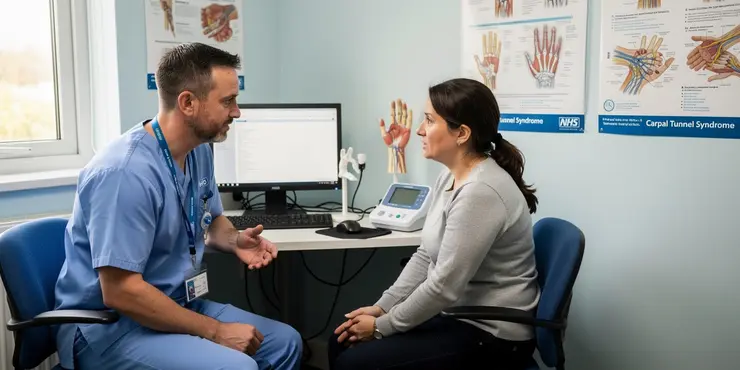
What causes Carpal Tunnel Syndrome?
Relevance: 34%
-

What is the difference between autism and Asperger's syndrome?
Relevance: 34%
-
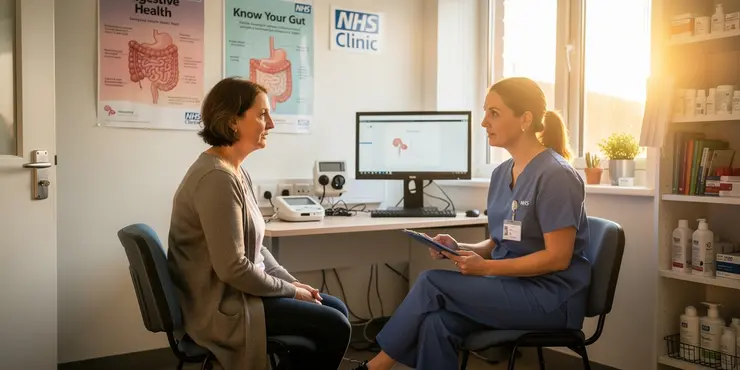
About irritable bowel syndrome (IBS)
Relevance: 33%
-

Turner syndrome: Beyond the classic XO phenotype
Relevance: 33%
-

What is congenital rubella syndrome?
Relevance: 33%
-

What is Carpal Tunnel Syndrome (CTS)?
Relevance: 33%
-

Having a child with Edwards' syndrome (trisomy 18) | NHS
Relevance: 33%
-
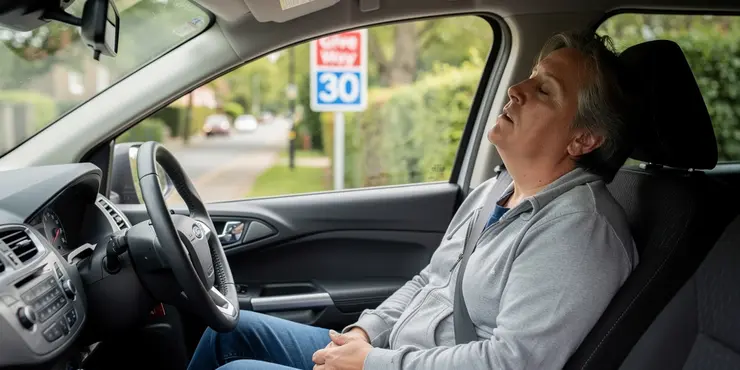
Can fatigue result in dangerous driving?
Relevance: 33%
-

Diagnosing irritable bowel syndrome (IBS)
Relevance: 33%
-

What is the prognosis for someone with CFS?
Relevance: 33%
-
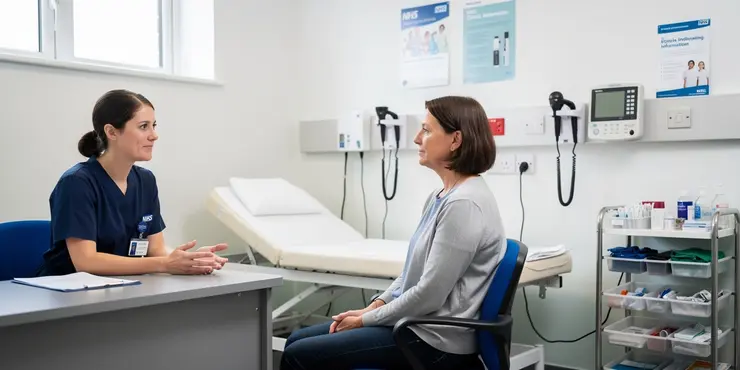
What is complex sleep apnea syndrome?
Relevance: 32%
-
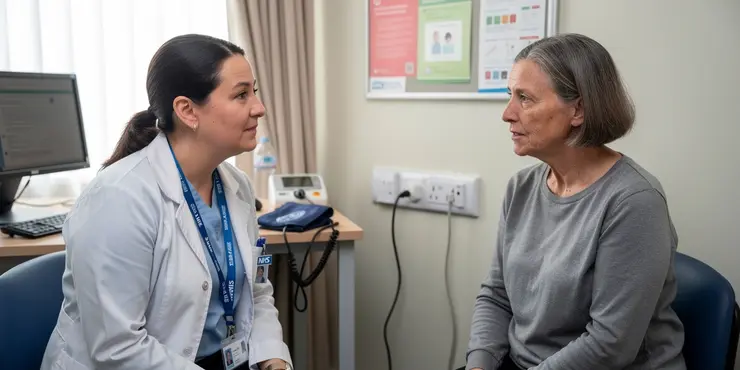
Can CFS be prevented?
Relevance: 32%
-
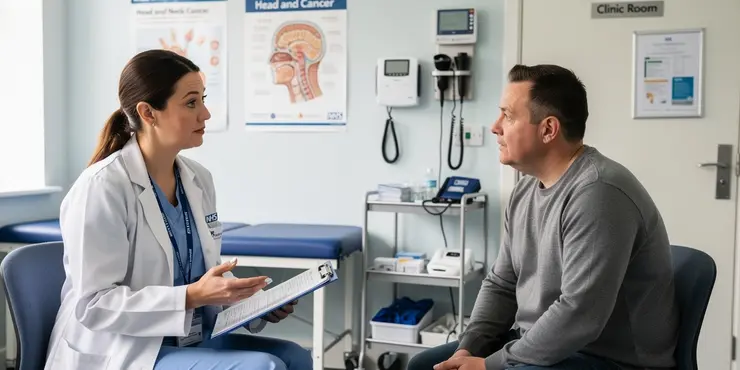
Head and Neck Cancer Diagnosis
Relevance: 31%
Understanding Chronic Fatigue Syndrome
Chronic fatigue syndrome (CFS), also known as myalgic encephalomyelitis (ME), is a complex and debilitating condition characterized by extreme fatigue and a variety of other symptoms. It is a challenging condition to diagnose due to the absence of specific laboratory tests and the overlap of symptoms with other medical conditions. In the UK, diagnosing CFS involves a comprehensive evaluation process.
Initial Assessment
The diagnostic process for CFS typically begins with a detailed medical history and physical examination by a GP (General Practitioner). Patients often present with severe fatigue that cannot be explained by an underlying medical condition. GPs look for fatigue that persists for six months or more and is not substantially alleviated by rest. Additionally, they consider other symptoms such as sleep disturbances, muscle or joint pain, headaches, sore throat, and cognitive difficulties.
Exclusion of Other Conditions
A crucial part of diagnosing CFS is ruling out other medical conditions that could explain the symptoms. This involves conducting a range of laboratory tests and examinations to exclude illnesses such as hypothyroidism, anaemia, diabetes, and other conditions that can cause chronic fatigue. Mental health conditions such as depression and anxiety are also considered, as they share similar symptoms with CFS.
Application of Diagnostic Criteria
In the UK, healthcare professionals may use established diagnostic criteria to support a CFS diagnosis. The most commonly applied criteria include the National Institute for Health and Care Excellence (NICE) guidelines. According to these guidelines, a diagnosis is made if the patient has persistent fatigue along with other symptoms, and these impair their ability to carry out usual daily activities. The fatigue should be new or have a specific onset and should not be the result of excessive effort.
Specialist Referral
If the GP suspects CFS and other conditions have been ruled out, they may refer the patient to a specialist service for further evaluation. Specialists can provide a more comprehensive assessment and confirm the diagnosis. These services often include multi-disciplinary teams with expertise in managing and diagnosing CFS/ME.
Diagnosis Challenges
Diagnosing CFS can be challenging due to its subjective nature and lack of concrete biomarkers. It requires careful consideration of symptoms, medical history, and exclusion of other conditions. Healthcare professionals must communicate effectively with patients, providing clear information and support throughout the diagnostic process.
Conclusion
Diagnosing chronic fatigue syndrome in the UK involves a thorough assessment process utilizing medical history, exclusion of other conditions, application of diagnostic criteria, and sometimes referral to specialists. While the process can be complex, early and accurate diagnosis is crucial for effective management and support for individuals living with CFS/ME.
Understanding Chronic Fatigue Syndrome
Chronic fatigue syndrome (CFS) is a health problem that makes you very tired. It is also called myalgic encephalomyelitis (ME). CFS can cause many other symptoms too. It is hard to diagnose CFS because it shares symptoms with other health problems. In the UK, finding out if someone has CFS involves a careful process.
Initial Assessment
The process starts when a doctor, called a GP, talks to you and checks your health. If you feel very tired for more than six months and rest does not help, the GP considers CFS. They also look for other symptoms like trouble sleeping, pain in muscles or joints, headaches, a sore throat, and difficulty thinking.
Exclusion of Other Conditions
To diagnose CFS, doctors need to make sure other health problems are not causing the symptoms. They do tests to rule out conditions like thyroid problems, low iron, and diabetes. They also check for mental health issues like depression and anxiety, as they can feel similar to CFS.
Application of Diagnostic Criteria
In the UK, doctors use guidelines to help diagnose CFS. One is from NICE, a health organization. They say a person has CFS if they have long-lasting tiredness and other symptoms that make daily activities hard. The tiredness should start suddenly and not be from too much effort.
Specialist Referral
If a GP thinks you might have CFS and has ruled out other conditions, they might send you to see a specialist. Specialists know a lot about CFS and can do more tests to confirm the diagnosis. These teams have different experts who work together to understand and treat CFS.
Diagnosis Challenges
Diagnosing CFS is tough because it is based on symptoms people feel. There are no definite tests for it. Doctors and patients need to talk and share information clearly. This helps make sure everyone understands the diagnosis process and support available.
Conclusion
Diagnosing CFS in the UK takes time and care. It involves speaking with your GP, checking other health conditions, using specific guidelines, and sometimes seeing a specialist. Even though it is complicated, finding out if someone has CFS early helps manage the condition better.
Helpful tools: You can use a calendar to track your symptoms. Writing down how you feel can help the doctor understand more about your tiredness and other symptoms.
Frequently Asked Questions
Useful Links
This website offers general information and is not a substitute for professional advice.
Always seek guidance from qualified professionals.
If you have any medical concerns or need urgent help, contact a healthcare professional or emergency services immediately.
Some of this content was generated with AI assistance. We’ve done our best to keep it accurate, helpful, and human-friendly.
- Ergsy carfully checks the information in the videos we provide here.
- Videos shown by Youtube after a video has completed, have NOT been reviewed by ERGSY.
- To view, click the arrow in centre of video.
- Most of the videos you find here will have subtitles and/or closed captions available.
- You may need to turn these on, and choose your preferred language.
- Go to the video you'd like to watch.
- If closed captions (CC) are available, settings will be visible on the bottom right of the video player.
- To turn on Captions, click settings .
- To turn off Captions, click settings again.
More Items From Ergsy search
-

Is chronic fatigue syndrome contagious?
Relevance: 100%
-
What is chronic fatigue syndrome?
Relevance: 98%
-

What causes chronic fatigue syndrome?
Relevance: 93%
-
Is chronic fatigue syndrome a mental illness?
Relevance: 91%
-

Are there psychological aspects to chronic fatigue syndrome?
Relevance: 88%
-
Can children develop chronic fatigue syndrome?
Relevance: 86%
-

What role do infections play in chronic fatigue syndrome?
Relevance: 83%
-

Who is at risk of developing chronic fatigue syndrome?
Relevance: 82%
-

How is chronic fatigue syndrome treated?
Relevance: 74%
-

Is there a cure for chronic fatigue syndrome?
Relevance: 73%
-

How is chronic fatigue syndrome diagnosed?
Relevance: 73%
-

Myalgic encephalomyelitis or chronic fatigue syndrome (ME/CFS) | NHS
Relevance: 73%
-

Can chronic fatigue syndrome be managed with lifestyle changes?
Relevance: 63%
-

How does CFS differ from regular fatigue?
Relevance: 50%
-

What is Cushing's syndrome?
Relevance: 43%
-

Prader-Willi Syndrome | NHS
Relevance: 40%
-

How is Carpal Tunnel Syndrome diagnosed?
Relevance: 39%
-

Carpal Tunnel Syndrome
Relevance: 38%
-

What is irritable bowel syndrome (IBS)?
Relevance: 38%
-

Munchausen's syndrome | NHS
Relevance: 37%
-

What is post-treatment Lyme disease syndrome (PTLDS)?
Relevance: 36%
-

What is complex sleep apnea syndrome?
Relevance: 35%
-

Is Carpal Tunnel Syndrome covered by the NHS?
Relevance: 35%
-

Symptoms of irritable bowel syndrome (IBS)
Relevance: 35%
-

Having a child with Down's syndrome | NHS
Relevance: 34%
-

Charles Bonnet Syndrome
Relevance: 34%
-

How does post-exertional malaise relate to CFS?
Relevance: 34%
-

What causes Carpal Tunnel Syndrome?
Relevance: 34%
-

What is the difference between autism and Asperger's syndrome?
Relevance: 34%
-

About irritable bowel syndrome (IBS)
Relevance: 33%
-

Turner syndrome: Beyond the classic XO phenotype
Relevance: 33%
-

What is congenital rubella syndrome?
Relevance: 33%
-

What is Carpal Tunnel Syndrome (CTS)?
Relevance: 33%
-

Having a child with Edwards' syndrome (trisomy 18) | NHS
Relevance: 33%
-

Can fatigue result in dangerous driving?
Relevance: 33%
-

Diagnosing irritable bowel syndrome (IBS)
Relevance: 33%
-

What is the prognosis for someone with CFS?
Relevance: 33%
-

What is complex sleep apnea syndrome?
Relevance: 32%
-

Can CFS be prevented?
Relevance: 32%
-

Head and Neck Cancer Diagnosis
Relevance: 31%


